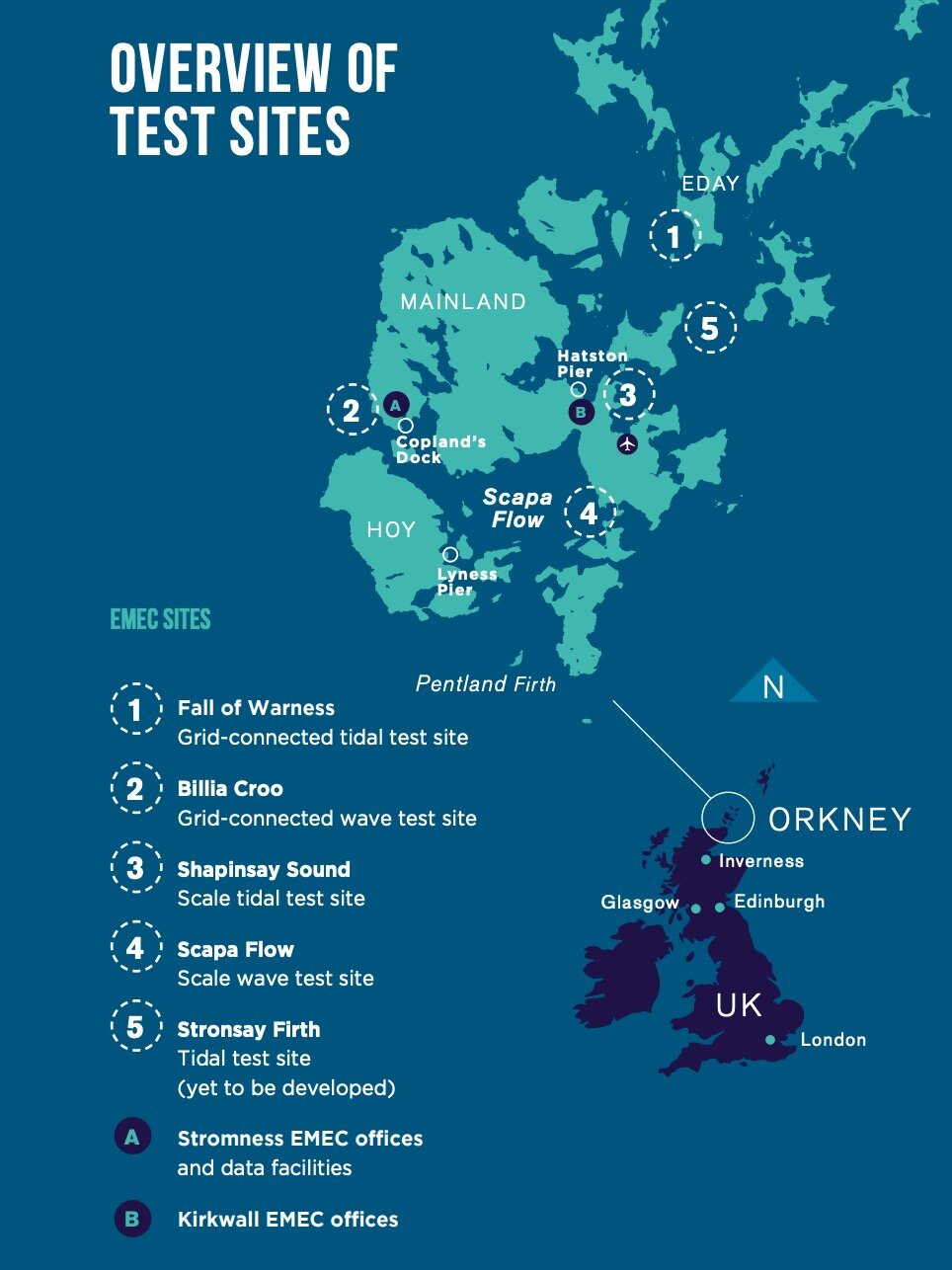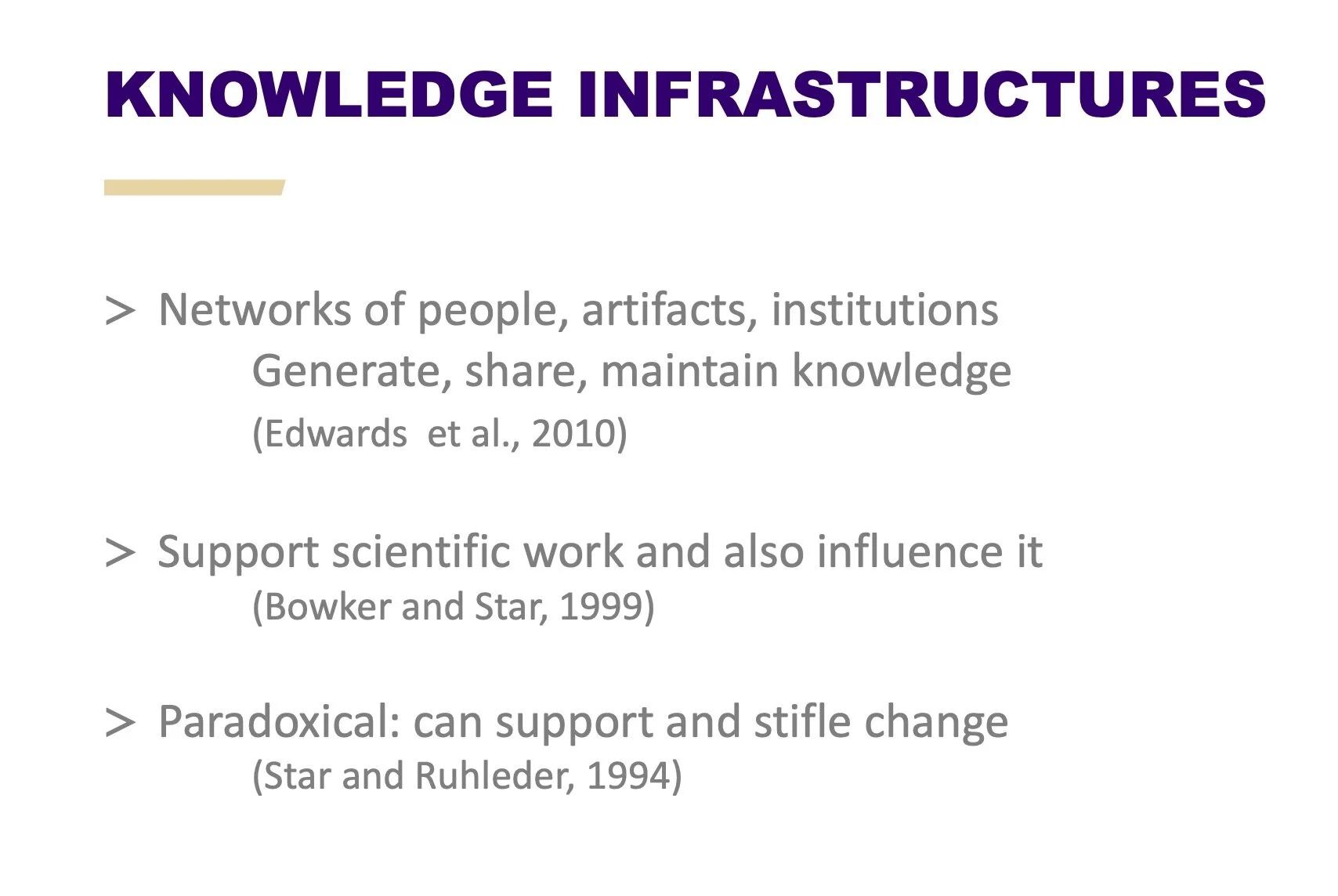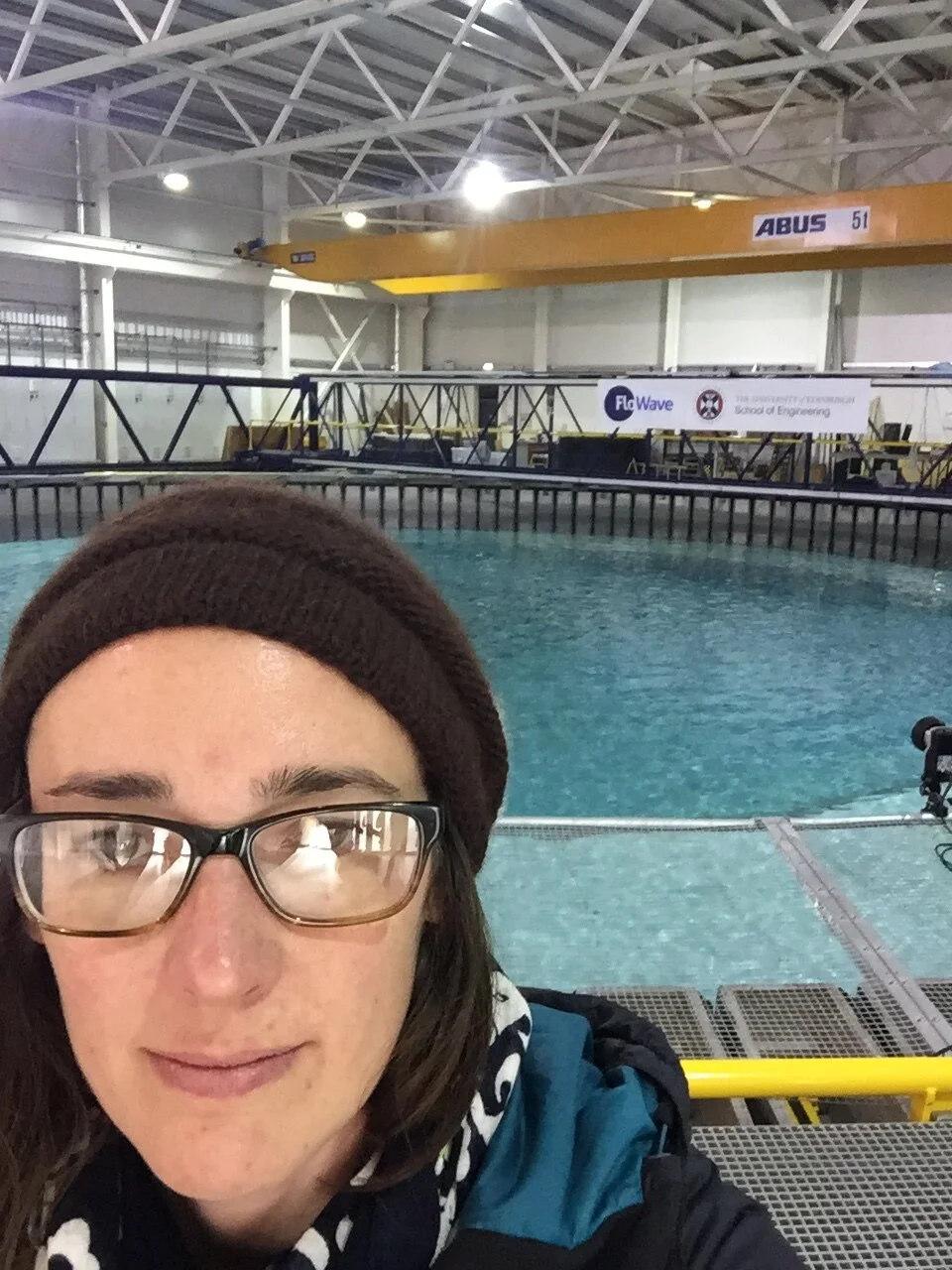Project Motivation:
As societies around the globe explore the best ways to transition our energy needs toward carbon-free sources, Scotland has led the world in embracing the potential of marine renewable energy technologies. Despite having a total population slightly less than the state of Minnesota, Scotland has tested and demonstrated more wave and tidal energy devices than any other country in the world. As such, Scotland provides a unique case study for understanding the drivers of innovation, engineering during times of transition and the ways that policy influences research and development productivity.
A view of the European Marine Energy Center (EMEC) test sites in Orkney, Scotland. (courtesy of EMEC)
Summary:
The field of Science & Technology Studies uses social scientific methods, including history, philosophy, sociology and others, to investigate various facets of STEM disciplines. Of particular interest are topics that tie STEM productivity to key social factors, such as governance and policy.
University of Washington Human Centered Design & Engineering (HCDE) postdoctoral scholar Shana Hirsch has focused specifically on using Science & Technology Studies frameworks to research the renewable energy sector in Scotland, where marine renewables are the dominant technology. She has conducted numerous interviews and attended a series of workshops with key stakeholders in the marine energy industry.
Her work will document and characterize the atmosphere and activities of the marine renewables industry during phases of relative greater or lesser social, political and economic support. Analysis of innovation indicators such as research publications and patent filings are used to support the qualitative characterizations.
Social scholars have defined knowledge infrastructures as “robust networks of people, artifacts, and institutions that generate, share, and maintain specific knowledge about the human and natural worlds” (Edwards et al. 2010).
Current Results:
Hirsch's research contributes to a growing body of work looking at renewable energy transitions and adaptations to climate change in Europe and around the globe. The research, still in early stages, will be used to provide recommendations to Scottish and UK policymakers on renewable energy innovation drivers and deterrents, as well as lessons learned that apply to the US marine energy sector.
Research Team:
More information:
Shana Hirsch, Exploring Knowledge Infrastructures to Support Marine Renewables: the Case of Research Innovation in Scotland, presentation to the PMEC All-Center Meeting, September, 2019.
University of Washington Data Ecologies Laboratory
Sponsor:
This work is supported by the National Science Foundation’s Science and Technology Studies program under award 1826737.
Banner photo credit: Government of Scotland, http://gov.scot
Last updated: January 17, 2020






